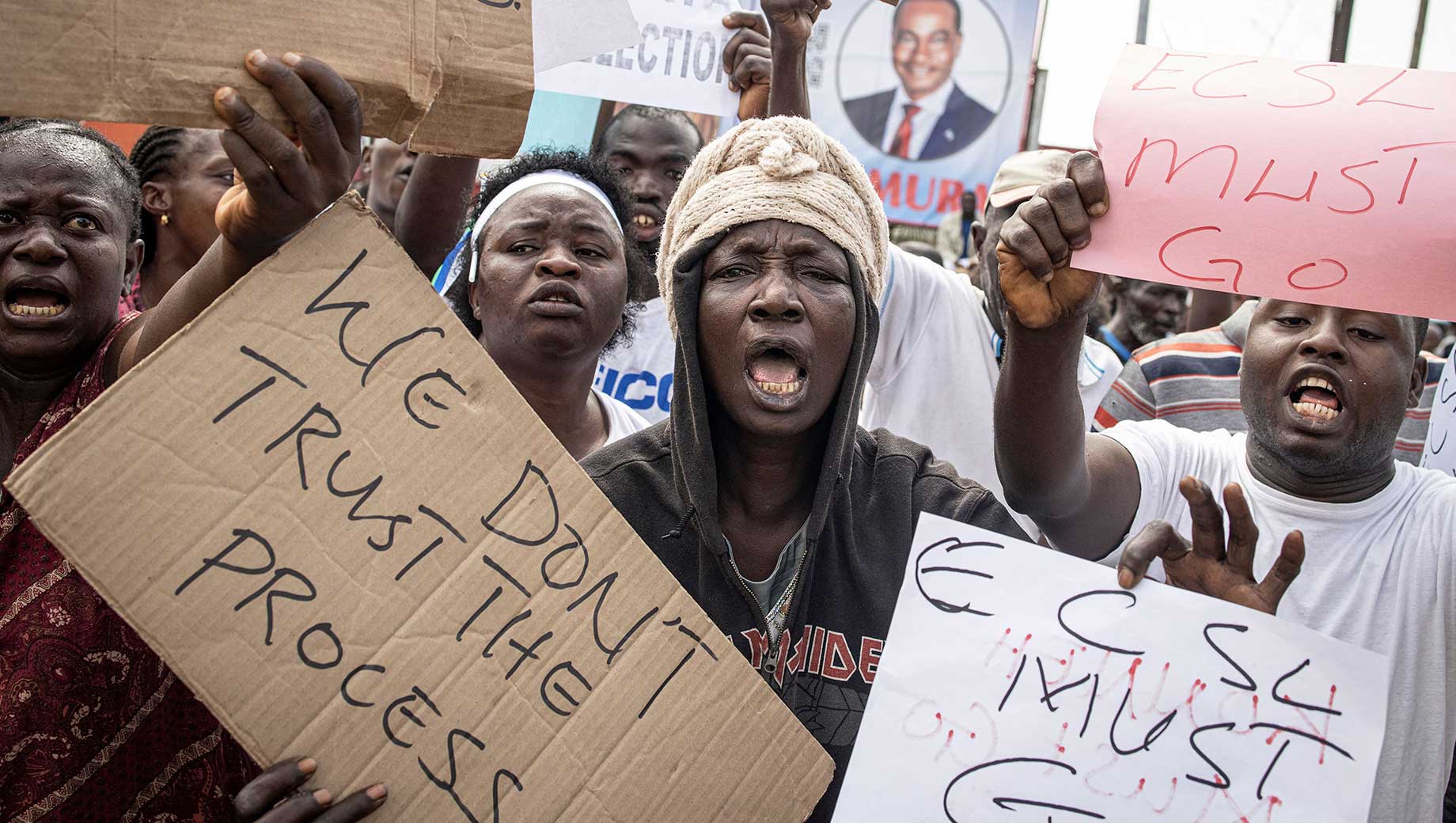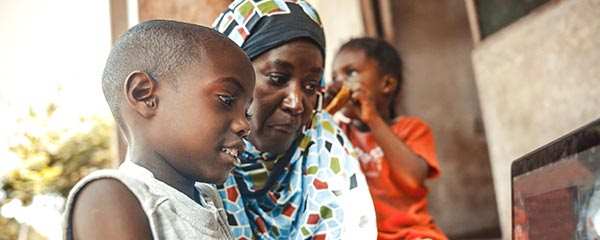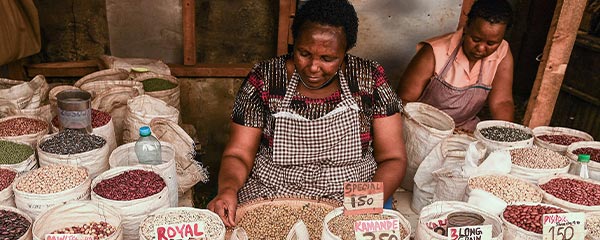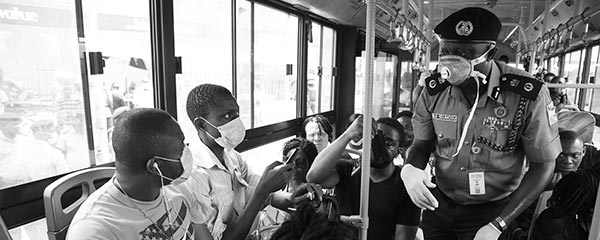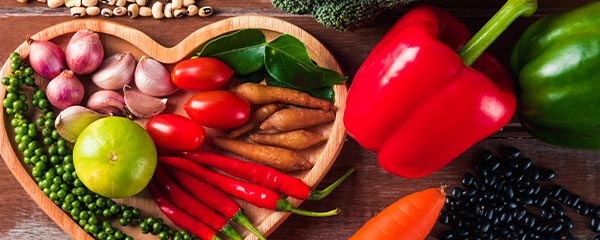Story Highlights
- 73% of Sierra Leoneans want to move permanently to another country
- Half of residents (54%) are confident in the honesty of their elections
- One in four (25%) are satisfied with their standard of living
WASHINGTON, D.C. -- Sierra Leoneans will head to the polls on Saturday to vote in the country’s first election since 2018. In a repeat of that contest, residents will again choose between Julius Maada Bio, the current president and candidate of the Sierra Leone People’s Party (SLPP), and opposition leader Samura Kamara, representing the All People’s Congress (APC). The winner of this election will face a flurry of challenges that have hampered the country’s progress over the past decade.
Quick Summary: Sierra Leone has been dealing with a cascade of crises in recent years, with frustrations over soaring food and fuel prices culminating in deadly protests last August, resulting in the deaths of several protesters and police officers.
The candidates are seeking to calm tensions while providing support and reassurance to an increasingly frustrated populace, with Bio vowing specifically to boost access to public education. However, Kamara has made reforming the electoral process a major campaign issue, just last week calling for the resignation of the chief electoral commissioner, as well as all regional commissioners across the country. Among his concerns are purported irregularities on voter ID cards and allegations of favoritism toward the ruling SLPP.
Slim Majority in Sierra Leone Express Faith in Elections: While a majority of Sierra Leoneans still express confidence in the honesty of elections in their country (54%), this is down from 64% who felt the same in 2019. This is still well above the regional median of 46% across sub-Saharan Africa who feel confident about elections in their country.
Although the majority of residents express faith in the electoral system, Bio has caused controversy recently by pushing to change the current voting system in favor of the proportional representation system to elect members of Parliament and councilors, used previously in 1996 and 2002. An APC effort to challenge the move in court was recently struck down, paving the way for the old system to be reinstated.
Living Standards Continue to Drop: The country has been struggling to overcome the lingering effects of an Ebola outbreak in 2014, which caused nearly 4,000 deaths, and the COVID-19 pandemic in 2020. Rising food prices and inflation have devastated many families, with 76% of Sierra Leoneans saying they have faced times over the past 12 months when they did not have enough money to buy food. Nearly two-thirds (64%) say they have been unable to afford adequate shelter or housing.
These struggles are accompanied by a massive drop in those saying they are satisfied with their current standard of living, falling from 41% in 2021 to 25% in 2022. Moreover, just 26% feel their standard of living is getting better, compared with 70% who feel it is getting worse. The precipitous decline in living standards prompted widespread protests last August that resulted in 27 deaths.
Most Sierra Leoneans Want to Leave the Country: Nearly three-quarters of all Sierra Leoneans (73%) say they would move permanently to another country if they could. This ties fellow West African nation Liberia for the highest rate in the world, far above the global average of 15%. This sentiment is even more fraught among the country's youth, with 79% of those aged 15 to 29 in Sierra Leone expressing a desire to leave.
This desire to flee is likely tied to the severe decline in living standards reported across the country in recent years. Sierra Leone has faced a long series of hardships since gaining independence from the United Kingdom in 1961.
Following decades of single-party rule, the country suffered a brutal civil war from 1991 to 2002 that left over 50,000 Sierra Leoneans dead. The United Nations Human Development Index, which looks at factors such as life expectancy at birth and mean years of schooling, ranked Sierra Leone at 182 out of 189 countries in 2020.
Implications
Candidates in this election will be hard-pressed to improve the wellbeing of a population buffeted by persistent problems on multiple fronts. The country is seeing the cost of living soar while purchasing power remains stagnant. Food price inflation was running at 160% earlier this year, while fuel prices rose by 120% last July, compounding the suffering experienced by a wide swath of the population.
This comes as residents are increasingly frustrated with and distrustful of their country’s government. Just 37% of Sierra Leoneans approve of the job performance of the leadership of their country, while 77% feel that corruption is widespread throughout the government. The newly elected president will need to move quickly to slow, and eventually reverse, the economic and social troubles that continue to afflict the country.
To stay up to date with the latest 优蜜传媒News insights and updates, .
For complete methodology and specific survey dates, please review .
Learn more about how the works.
